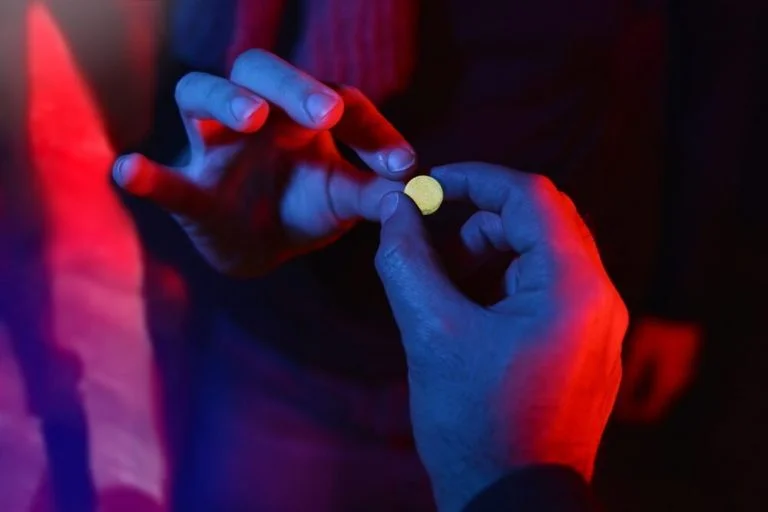Is Molly Addictive?
“Molly” is the street name of a “pure” form of MDMA, a synthetic drug that’s the active ingredient in the club drug ecstasy. But research shows that only a small percentage of the Molly supply is actually pure MDMA, with four out of ten tablets containing no MDMA at all and two out of ten containing additives like amphetamine, synthetic marijuana, caffeine, PCP, and Sudafed. While Molly abuse is dangerous, most people don’t develop a dependence on it–that is, they don’t experience withdrawal symptoms when they stop using it. That’s because most Molly users take it intermittently rather than on a very regular basis. But is Molly addictive?

Is molly addictive? Read on to learn more about this dangerous party drug.
Addiction is different from dependence. It’s characterized by the inability to stop using a drug even though it’s causing problems in your life. Addiction is the result of brain changes that occur when you use any psychoactive substance, including Molly. So the answer to the question, “Is Molly addictive?” is a resounding “yes.”
Why Is Molly Addictive?
Molly produces an intense feeling of mental alertness, intimacy, and wellbeing. Molly causes an intense rush of dopamine, the neurotransmitter that produces feelings of pleasure, and increases the activity of feel-good neurotransmitters like serotonin and norepinephrine. It also releases a hormone known as oxytocin, which is called the “love hormone” because it’s released naturally during orgasm and childbirth and promotes bonding.
With heavy use, physical and chemical changes in the brain’s reward, learning, and memory centers cause intense cravings for the drug, which lead users to seek it out at all costs. If you want to quit using Molly or have tried unsuccessfully to do so, you may be addicted.
Signs of Molly Addiction
Is Molly addictive the same way other drugs are addictive? Not necessarily, according to research. The National Institute on Drug Abuse (NIDA) reports that animals will self-administer MDMA, although the degree of the self-administration is less than that of other addictive drugs like cocaine and heroin.
But data from both animals and humans show that regular use of Molly causes changes in the dopamine and serotonin systems that are related to addiction, causing the same types of behavioral changes that other drugs produce, including impulsivity. NIDA points out that some people who use MDMA report classic symptoms of addiction and dependence.
Some signs and symptoms that point to Molly addiction include:
- Using Molly despite negative the consequences it causes, including problems related to your relationships, finances, and health.
- Losing interest in activities you once enjoyed.
- Neglecting duties at work, school, and home due to Molly use.
- Spending a lot of time seeking, using, and recovering from using Molly.
- Experiencing intense cravings for Molly.
- Finding that you can’t quit using Molly even though you want to or have tried to.
Treating a Molly addiction requires intensive therapy that helps you address the issues underlying the addiction as well as learn healthier ways of thinking and behaving.
Signs of Molly Withdrawal
Experiencing withdrawal symptoms when you stop using a drug is a sign that you’ve developed a dependence on it. That means that your brain has acclimated to the presence of of the drug and now operates more comfortably when you’re on it. Then, when you stop using it, normal brain function rebounds and causes the onset of withdrawal symptoms.
While Molly dependence isn’t as common as dependence on other drugs, heavy Molly use can produce tolerance, which means that you need higher doses to get the desired effects. This is a sign that dependence is developing.
Once you’ve developed dependence on it, Molly withdrawal will likely occur when you stop using it. Molly withdrawal symptoms include:
- Depression or anxiety.
- Confusion.
- Agitation.
- Insomnia.
- Paranoia.
- Fatigue.
- Difficulty concentrating.
- Loss of appetite.
- Memory problems.
- Changes in self-perception.
Molly withdrawal treatment through medical detox can help reduce the severity of Molly withdrawal. Medical detox is supervised by medical personnel who administer medication as needed to ease withdrawal symptoms. Withdrawal symptoms typically last a week to ten days, although depression and cravings can last much longer.
Treatment Works
If you or someone you love are addicted to Molly, treatment can help you end the addiction and improve your life on many fronts. Addiction treatment works for most people who engage with their treatment plan, and it can help you end a Molly addiction for the long-term.
Make a phone call that will connect you to a professional drug treatment center. The call you make may save your life or the life of someone you love. Call us today at (800) 429-7690.




